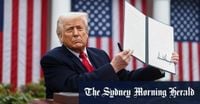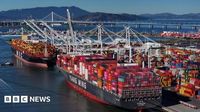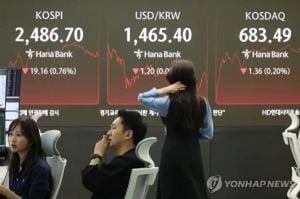In a bold move that has sent ripples through the global economy, President Donald Trump announced sweeping new import taxes on all goods entering the United States on April 2, 2025, dubbing the day "Liberation Day." This initiative marks what many analysts are calling the most significant upheaval in the international trade order since the aftermath of World War II.
The plan sets a baseline tariff of 10% on all imports, which is consistent with Trump's campaign proposals from last year. However, items from approximately 60 trade partners, including major economies such as the European Union and China, will face even steeper tariffs as a form of payback for what Trump describes as unfair trade practices.
"Today we are standing up for the American worker and we are finally putting America first," Trump proclaimed in a speech delivered in the Rose Garden, flanked by U.S. flags. The White House announced that the 10% tariffs will take effect on April 5, 2025, while higher duties for certain nations will begin on April 9, 2025.
This new wave of tariffs could potentially raise $2.2 trillion (£1.7 trillion) in revenue by 2034, according to the non-partisan Congressional Budget Office. However, analysts warn that this escalation in trade tensions could lead to higher prices for American consumers and slower economic growth in the U.S., with some countries possibly facing recession.
Trump's tariffs are particularly harsh on China, which will see a new 34% tariff on top of an existing 20% levy, bringing the total to at least 54%. Japan and India will face tariffs of 24% and 26%, respectively, while Vietnam and Cambodia will be hit with 46% and 49% tariffs, respectively. Lesotho, one of Africa's smallest nations, has been singled out for a staggering 50% tariff, alongside the French territory of Saint Pierre and Miquelon.
"He just dropped a nuclear bomb on the global trading system," said Ken Rogoff, former chief economist at the International Monetary Fund, reflecting the shock among analysts regarding the announcement.
Despite the potential fallout, Trump insists that these tariffs are a necessary measure to combat what he describes as a long history of the U.S. being "looted, pillaged, raped and plundered" by foreign nations. He framed the tariffs as a declaration of economic independence, asserting, "It's one of the most important days, in my opinion, in American history."
While the tariffs will impact trillions of dollars in trade, they are expected to set the stage for higher prices on a wide range of consumer goods, including clothing, bicycles, toys, and even European wines. The U.S. stock market reacted negatively to the news, with Japan's Nikkei 225 index dropping 4% and Australia's ASX 200 declining by 2% in early trading on April 3, 2025.
In a warning to other nations, Treasury Secretary Scott Bessent advised against retaliation, stating, "My advice to every country right now is, do not retaliate. Sit back, take it in, let's see how it goes. Because if you retaliate, there will be escalation." However, China's commerce ministry has already voiced strong opposition, stating it would take "resolute countermeasures to safeguard its rights and interests," while European Commission President Ursula von der Leyen indicated preparations for further steps against the U.S. if negotiations fail.
Among the countries facing the steepest tariffs, Lesotho stands out, with a 50% tariff that has left its government shocked. Lesotho's Foreign Minister Lejone Mpotjoane expressed disbelief at Trump's earlier comments dismissing the country, stating, "To my surprise, the country that nobody has heard of is the country where the U.S. has a permanent mission." In 2024, goods worth $240 million were traded between the U.S. and Lesotho, predominantly textiles and clothing.
Despite the sudden tariff hike, Lesotho's foreign ministry maintains that relations with the U.S. remain "warm and cordial." However, the Trump administration has already paused contributions to PEPFAR, a significant U.S. initiative that provides support for HIV and TB services in the region, throwing local health services into uncertainty.
As the world watches the unfolding situation, the ramifications of Trump's tariffs could be far-reaching. The U.S. is the second-largest trading nation globally and the biggest importer of goods, with over 200 countries trading with it. The tariffs will come into effect on April 5, 2025, for the baseline 10% and April 9, 2025, for the higher rates on targeted nations.
In summary, the White House has released a list of over 100 countries that will be affected by the new tariffs, with China facing the highest rates. The announcement has been met with a mix of shock and concern, as many speculate about the potential consequences for the global economy. The coming days will be crucial in determining how other nations respond and what the long-term effects of these tariffs will be on international trade and U.S. consumers alike.






